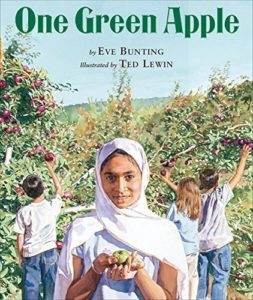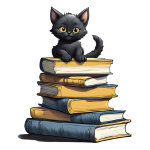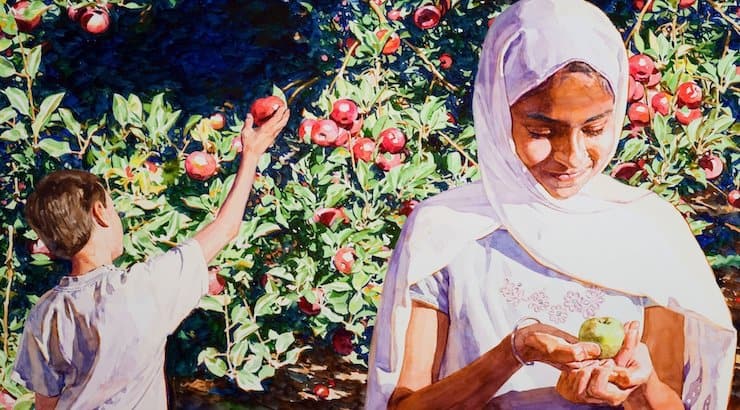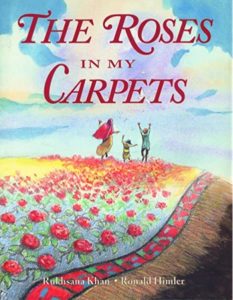A few years ago, back when the girls were still homeschooled, we’d get up to all kinds of shenanigans together. We’d make a day of book hunting and grocery shopping. It made sense that the two went together because the old bookshop, Vanguard Books, was just a minute away from the cash and carry, Best Price, at the F6 sector in Islamabad.
They say that location is everything and in my case, it was true – Vanguard always trumped Best Price for the lion’s share of my budget 🙂 This was because it was the first store on the street and so we would hit it first. Of course, by the time we were done and had to adjourn to Best Price, we’d have invariably used up a large portion of our money for our groceries.
I didn’t feel too guilty because I learnt a very important lesson. I learnt that we could do with fewer luxuries, but we could not do without books. (No child was harmed or deprived of sustenance, alhamdulillah… I had sense enough to not blow the entire budget! And of course, I almost always buy used books.)
“One more thing is of vital importance; children must have books, living books; the best are not too good for them; anything less than the best is not good enough; and if it is needful to exercise economy, let go everything that belongs to soft and luxurious living before letting go the duty of supplying the books, and the frequent changes of books, which are necessary for the constant stimulation of the child’s intellectual life.”
Charlotte Mason, (Parents and Children, p. 279)
She was right. The worth of the book isn’t in its price but in the value it imparts to the reader. I like to think that with prayer and good intentions, a good book can bring about not just knowledge, but wisdom, character and imagination and empathy. Imagine the benefit such a well-read person can bring to the world.
Books have comforted me when I was at my loneliest. They have taught me when I was at my lowest. I guess this is why I am so passionate about books. But I realise even as I write this that, at the end of the day, I have the funds and therefore, the luxury of choice. While I deliberate over what extras I can leave out, many others are only considering if they can bring home the staples.
In Singapore, where I am from, there is a public library in every neighbourhood and they are wonderfully stocked. I would love to see this in Pakistan, where I am currently based. I can’t speak for other cities, but the libraries in Islamabad are poorly managed. I’ll write more about my love for libraries soon, God willing, but right now, I’d like to suggest a few things you can do for the community that lacks access to good books:
1. Lobby for a library. This might be a frustrating endeavour, depending on the kind of people in office, but try!
2. Start sharing your books. I know. It’s hard. A friend of mine asked how it was that I was so willing to share my books. I told her that I do miss my books when they are gone because they are like my children (don’t laugh!), but it makes me truly happy to see kids reading and reading lots. You need not place your books in a common physical space and you need not stock only new books. A database of books set up with a good library app can do the trick and used books will mean more affordability and more volume! [My friends and I have used Boocshare and it worked well for us.]
3. Start your own library. If the powers that be won’t give you a library, start your own for the community with like-minded friends. If you are concerned about folks not returning your books, start out with a reference/read only library.
4. Gift books. There are many organisations that will appreciate a donation. Seek them out and better yet, organise a storytelling session while you’re at it!
I’d like to leave you with a quote by Charlotte Mason who was a wonderful visionary. Let’s build a library and build one with the best of books…
A child’s intercourse must always be with good books, the best that we can find. We must put into their hands the sources which we must needs use for ourselves, the best books of the best writers. For the mind is capable of dealing with only one kind of food; it lives, grows and is nourished upon ideas only; mere information is to it as a meal of sawdust to the body.
Charlotte Mason
Photo by Huỳnh Đạt from Pexels
 On this day, Farah and her classmates are visiting a farm. She enjoys the sights and smells but is very anxious and feels “tight inside”. When she goes to pick an apple, she chooses a small green one that fits right in her hand. Farah likes it even though the others choose the sweet, red ones … it is different, like her. When they make the cider, her classmates protest as she adds this green apple into the vat of ripe red ones.
On this day, Farah and her classmates are visiting a farm. She enjoys the sights and smells but is very anxious and feels “tight inside”. When she goes to pick an apple, she chooses a small green one that fits right in her hand. Farah likes it even though the others choose the sweet, red ones … it is different, like her. When they make the cider, her classmates protest as she adds this green apple into the vat of ripe red ones.


 I personally love this book – Ronald Himmler’s illustrations are always beautiful and in this case, he has sensitively captured the grief and quiet dignity of the family. [You might recognize his work in Sadako and the Thousand Paper Cranes, Rudy’s Pond, Fly Away Home and The Well.] The contrast between the muddy walls and vibrant carpets bring home the themes of strife and hope.
I personally love this book – Ronald Himmler’s illustrations are always beautiful and in this case, he has sensitively captured the grief and quiet dignity of the family. [You might recognize his work in Sadako and the Thousand Paper Cranes, Rudy’s Pond, Fly Away Home and The Well.] The contrast between the muddy walls and vibrant carpets bring home the themes of strife and hope.